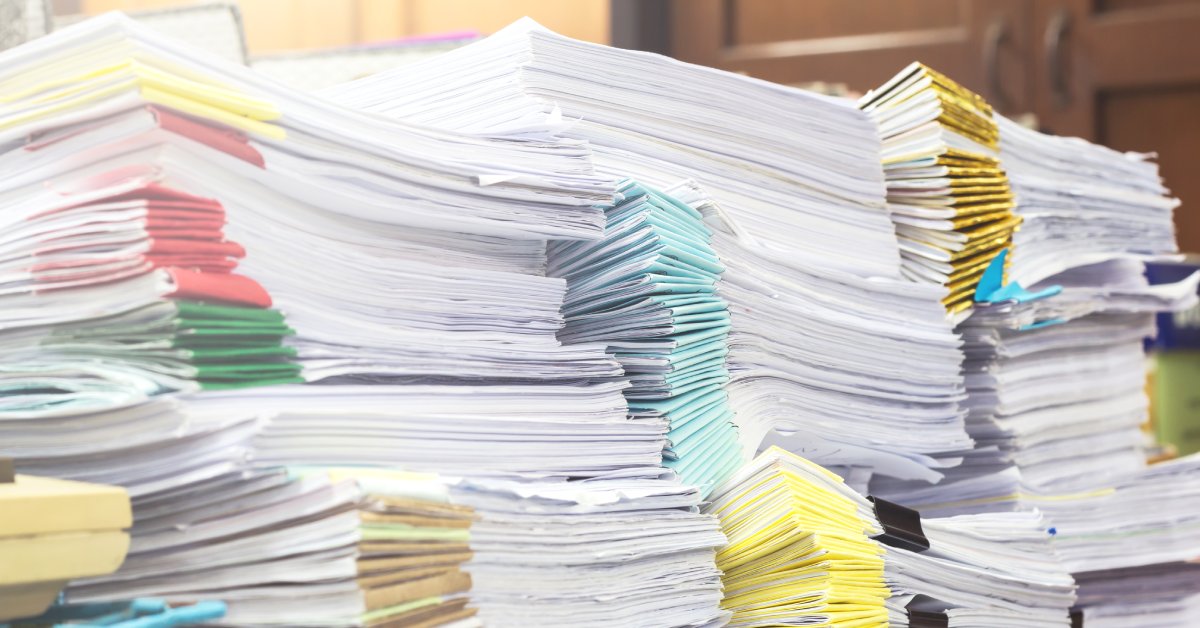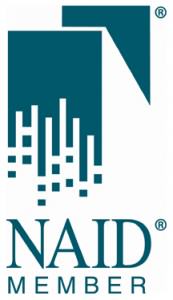
Financial firms regularly handle sensitive and confidential information. Client records, financial statements, contracts, and internal memos all contain data that must remain private. Mishandling can lead to severe consequences, including legal penalties, reputational damage, and financial losses.
Unfortunately, these organizations often rely on ineffective shredding practices that can put both the company and its clients at risk. This article explores the most secure shredding mistakes to avoid for financial firms and offers actionable tips to safeguard sensitive information.
How Shredding Improves Financial Security and Privacy
When done correctly, secure shredding provides these key benefits:
- Protecting client privacy: Proper shredding ensures that sensitive client information, such as Social Security numbers or account details, does not fall into the wrong hands.
- Maintaining regulatory compliance: Financial firms operate under stringent data protection laws, including HIPAA and FACTA. Secure shredding helps companies meet these requirements and avoid penalties.
- Preventing identity theft and fraud: Shredding minimizes the risk of exposing personal and corporate information to malicious actors.
- Upholding reputation: A data leak can irreparably harm a firm’s reputation. Shredding builds trust with clients by demonstrating a commitment to information security.
- Safeguarding intellectual property: Confidential business information such as trade secrets and client lists should be properly destroyed to prevent competitors from gaining access.
- Promoting sustainability: Paper shredding helps reduce a business’s carbon footprint by preventing materials from ending up in landfills.
With these benefits, financial firms can operate with peace of mind.
Top Ten Shredding Mistakes Financial Firms Must Avoid
While shredding offers significant advantages, there are a few things to watch out for to ensure you’re getting the most out of it.
1. Neglecting To Shred Outdated Financial Documents
Outdated documents may seem irrelevant, but they are a goldmine for identity thieves. Financial records contain historical account information, client data, and other sensitive details that can still be exploited.
To ensure this doesn’t happen, establish a retention policy for financial documents based on legal guidelines. Once the retention period expires, ensure all documents are shredded securely.
2. Failing To Train Employees on Proper Shredding Procedures
Your employees are the first line of defense in information security. Without proper training, they may accidentally dispose of sensitive documents incorrectly. It’s important to conduct regular training sessions on what should and shouldn’t be shredded, emphasizing the importance of secure disposal practices.
3. Disposing of Documents Without Shredding
Seemingly insignificant documents can pose a risk. Memos, rough drafts, or even sticky notes can contain partial data that completes the picture for a cybercriminal. If you want to err on the side of caution, adopt a “shred everything” policy.
4. Not Having a Consistent Shredding Schedule
Some firms shred only occasionally, allowing sensitive documents to pile up. This excess data increases the risk of accidental exposure or theft. Implement a consistent shredding schedule, whether weekly, biweekly, or monthly, based on your document volume.
5. Using Inadequate Shredding Equipment
Residential-grade shredders often produce strip-cut shreds, which determined individuals can reconstruct. If you’re planning on shredding items yourself, invest in cross-cut or micro-cut shredders that meet industry standards for secure document destruction.
6. Overlooking Digital Data Security
Shredding isn’t just for paper. Hard drives, USBs, and CDs contain highly sensitive information that can be recovered if not destroyed properly. For maximum protection, partner with a shredding provider that offers secure destruction services for both physical and digital media.
7. Ignoring Compliance Regulations
Regulations such as HIPAA and FACTA have strict guidelines for data disposal. Ignoring these can result in hefty fines and legal battles. Stay up to date with regulatory requirements, and implement shredding practices that ensure full compliance.
8. Not Partnering With a Certified Shredding Provider
DIY shredding can be time-consuming and risky. Certified shredding providers ensure secure handling and disposal of sensitive materials. Be sure to partner with a provider certified by NAID (National Association for Information Destruction) for reliable services.
9. Lack of a Data Breach Response Plan
Even with secure shredding practices, breaches can happen. Having no response plan in place can amplify the damage. Develop a comprehensive strategy that involves secure shredding protocols to mitigate risks.
10. Underestimating the Risk of Internal Threats
Internal threats, whether accidental or intentional, are an overlooked vulnerability. Employees may mishandle or improperly dispose of sensitive data. It’s good practice to use locked shredding bins and enforce strict access control to minimize the risk of leaks from within.
Choosing Between DIY and Third-Party Shredding
Firms can choose between shredding themselves or hiring a third-party professional. Each has its own benefits and drawbacks.
DIY Shredding
Handling shredding internally may seem cost-effective and convenient at first. With DIY shredding, businesses have direct control over the process and can manage the destruction of sensitive documents at their own pace.
However, this approach comes with challenges. Standard office shredders often have trouble with high volumes of shredding, leading to time-consuming efforts for employees. Additionally, secure disposal of the shredded material must be ensured to prevent potential data breaches.
Hiring a Third Party
Outsourcing shredding to a certified third-party provider offers a secure, streamlined alternative. These professionals use industrial-grade shredders capable of quickly destroying large amounts of sensitive material. Many third-party shredding companies also provide certificates of destruction, offering proof of compliance with privacy regulations.
Furthermore, hiring professionals reduces the workload on your employees, allowing them to focus on their core tasks. While it may incur additional costs, the convenience and security provided by third-party shredding services outweigh any financial implications.
What To Look for in a Shredding Partner
When choosing a shredding provider, consider the following factors:
- Range of services: Look for a provider that offers both paper and digital data destruction services.
- Convenience: Providers should offer flexible pickup schedules or on-site shredding options.
- Document tracking: A reliable chain of custody and documentation ensures accountability.
- Eco-friendly practices: Choose a provider that recycles shredded material to support sustainability efforts.
Secure shredding is always good practice, especially for businesses that need to protect sensitive information. Being able to spot these secure shredding mistakes to avoid for financial firms will help you enhance your firm’s security and boost client trust.
By partnering with Intellishred, you won’t have to second-guess your disposal policies. Our secure shredding service takes the guesswork out of the process and ensures regulatory compliance.







